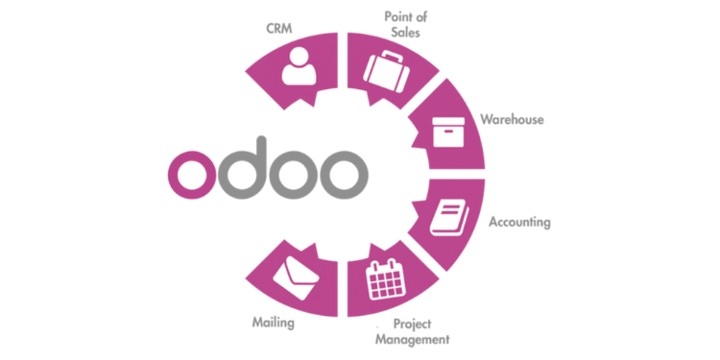In today’s fast business world, finding the right tools to manage operations efficiently is a big task for a company. Here we found a complete solution for your business:
Odoo is an open-source ERP (enterprise resources planning) software platform written in Python. It was previously known as OpenERP before rebranding to Odoo in 2014.
Odoo is a comprehensive suite of business applications such as CRM, e-commerce, accounting, human resources, and inventory management modules, among others. In this blog, let’s dive into Odoo and its key components.
The platform offers a module functionality approach, meaning businesses can add or remove modules based on their specific needs. The platform is built on a client-server architecture, with the server component running on a web server and the client component running in a web browser.
Offers a range of features

Key Features of Odoo
- Multiple module integration: Odoo consists of more than 35 modules that are the essential components of a business and you can integrate all of them easily according to your business needs.
- Customizable Dashboards: Customizable dashboards provide a real-time view of key business metrics, including sales, expenses, and inventory.
- Multi-language and Multi-Currency Support: This platform supports businesses operating in multiple countries. Supports all languages and currencies for business.
- User-friendly Interface: The Interface is easy to navigate and customizable.
- Access to a community of developers: Large community of developers who contribute to platform development.

Benefits of Odoo
- Cost Effective
- Scalability
- Real-time data
- Customer support
- Integration
Conclusion:
We understand the Odoo, key features, and benefits and its features showcase why implementing Odoo works as the best approach for all kinds of businesses.
Overall, Odoo is a powerful tool that can help to scale up your business to the next level and achieve all goals.
For flawless Odoo Connectors, implementation, and services contact us at


